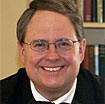Commentary on Mark 4:26-34
Working Preacher published an essay of mine on humor in Mark’s parables, which I’m sure you’ll remember. It was published only thirteen years ago. That piece presented my approach to Mark 4:1–34, which you may want to reread. If you don’t like it, there’s no reason to suppose you’ll benefit from my comments this week.
What that previous study didn’t do, but what should be done here, is orient you to the architecture of Mark 4:1–34:
A. Introducing the parables (4:1–2)
B. A sower’s seeds (4:3–9)
C. Parables and perception (4:10–12)
D. The seeds’ reception (4:13–20)
C.’ Disclosure and reception (4:21–23 + 4:24–25)
B.’ Other sowers’ seeds (4:26–29 + 4:30–32)
A.’ Concluding the parables (4:33–34)
When teaching Sunday school I might offer this diagram to help folks appreciate Mark’s careful but easily unnoticed arrangement. For preaching Mark 4:26–34 I use it for my own preparation, to follow the evangelist’s lead.
This Sunday we focus on the last two parables in Mark 4 and the evangelist’s windup of this chapter’s long monologue by Jesus to a large crowd (verse 1) or only “those … around him along with the twelve” (verse 10, New Revised Standard Version Updated Edition). To whom Jesus is speaking in verses 21, 26, and 30 is unclear but doesn’t much matter. He’s addressing us today.
The seed growing secretly (4:26–29) is absent from Matthew and Luke. Leave it to Mark to recount a parable that accents “the mystery [to mystērion] of the kingdom of God” (4:11, King James Version). Like the kingdom’s proclamation (4:14), seed is scattered, ignored, then “blasts off” (blastai) and “grows long” (mēkunētai). How? The sower has no idea (4:26–27). Night and day, day after day, the sower does nothing but sleep. “The earth bears fruit automatically” (automatatē), without human effort. Mark made this critical point in 4:11, 24–25: God’s kingdom is a pure gift. We do nothing to cajole it into being. It flourishes to fullness of itself (4:28). What a relief.
But the gospel is a double-edged blade. When the grain has ripened for harvesting, “at once he sends in the sickle” (4:29, my translation): an image for final judgment (Joel 3:13; Revelation 14:14–20) that endures in the figure of the Grim Reaper. For this, too, Mark has prepared us. Satan can snatch the word from us (4:15).
Momentarily we may respond with joy, only to slump under strain (4:16–17). This world’s anxieties, the seduction of wealth, and the passion for pleasures “choke the word, and so it produces nothing” (4:19, New Jerusalem Bible). God’s kingdom is a gift outright, but we can refuse it or lose it. “For to those who have, more will be given, and from those who have nothing, even what they have will be taken away” (4:25, New Revised Standard Version Updated Edition). “Pay attention to what you hear” (4:24a).
A final surprise: the minuscule mustard seed (4:30–32) that yields a massive plant. In Ezekiel (17:22–24; 31:1–9) and Daniel (4:1–27), God’s protection of the vulnerable is symbolized by lofty trees with broad, shady branches in which birds may build nests for their babies. Into this trope Mark injects a neat twist: unlike Matthew 13:32 and Luke 13:19, which perpetuate the clichéd contrast between smallest seed and towering tree, Mark subverts our expectation by comparing the tiniest of seeds with “the greatest of all the vegetables” (meizon pantōn tōn lachanōn, 3:32). That’s hilarious: God’s kingdom is like the smallest seed that grows up to become the greatest of—zucchini.
Speaking in parables “as they were able to hear” (Mark 4:33, New Revised Standard Version Updated Edition) resolves nothing about his listeners’ degree of perception. That comment could suggest that the parables were told either to relieve or to intensify their misunderstanding (compare 4:11–12). Verse 34 aggravates the mystery: privately, Jesus “settled” (epeluen) everything with his disciples, though Mark never indicates they were the better for it. To the contrary: throughout this Gospel his followers’ incomprehension is incorrigible (4:13, 41; 5:31; 6:35, 52; 7:18; 8:4, 17, 21, 32; 9:32, 34; 10:13, 37; 14:10, 31, 37, 50; 16:8).
The greatest hazards presented by any preacher of the parables are moralizing and trying to explain too much. Both are born of our insecurity and the influence of crummy sermons we have heard. The persons and things in these parables are colorless and passive. They are hardly agents at all. Mark 4 is not interested in our religious or political projects, dependent on human initiative with achievement measured by mortal standards.
Instead, Mark offers glimpses of God’s sovereign authority, which through Jesus’ words and deeds is erupting into our everyday world. If we enjoy even a shred of insight into his teaching, such comprehension is also God’s gift and not the product of his listeners’ education, industry, or cleverness. That may console some and offend others. It depends on your point of view.
For all their obscurity, one thing is clear from the parables in Mark 4: Jesus’ claim that God’s sovereignty undermines all human notions in the most preposterous manner. Seventy-five percent of a planter’s effort is wasted; the remaining 25 percent takes root and thrives with staggering prolificacy (verses 3–9). A seed explodes, its fruit matures, without the slightest cultivation. The smallest of seeds becomes the biggest of vegetables. Such images don’t clarify; they shock. Those receiving such instruction remain comically stumped. The kingdom of God does not operate in accordance with received opinion and the violence of this world’s principalities. At every point it upsets conventional wisdom, turns, and defies it again.
If only we will surrender ourselves to such a God, both preacher and congregation can unload the specious burdens of a perfect sermon, completely comprehended. Divine mystery cannot be solved. Our responsibility is to proclaim and to hold onto it. Someone plants. Another waters. God alone gives growth (1 Corinthians 3:6). Immersing ourselves in the kingdom’s mystery is excellent tutelage in Easter’s disclosure of the crucified and risen Lord we are following.



June 16, 2024